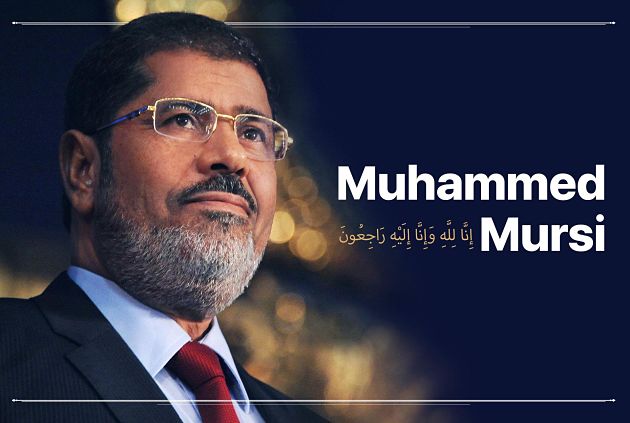This week, the world marked the anniversary of the martyrdom of Egypt’s freely elected president in 2012 and his ouster by the military junta in 2013, Mohammed Morsi. He was the country’s first president to come from the ranks of its oldest social movement, the Muslim Brotherhood, which had faced decades of repression. Despite the assassination of its leaders and the arrest and killing of thousands of its members, this organization managed to survive and politically lead the popular revolution in Tahrir that began in 2011. Morsi’s election as president of Egypt brought hope and enthusiasm to sincere and conscious Muslims, while terrifying the enemies of Islam. He became a symbol of the triumph of the Arab Spring, and his violent ouster a year later marked the beginning of its end, as not only was his symbol of power removed, but thousands of his supporters were killed defending their president. His cynical and treacherous assassination behind bars symbolized the solemn execution of all these hopes.
There have been many discussions about Morsi’s political mistakes, often comparing him to the ousted and executed Turkish Prime Minister Adnan Menderes, and contrasting him with Recep Tayyip Erdogan, who managed to neutralize his enemies. However, it is unclear whether these were mistakes or simply objective problems faced by a person who did not have the opportunity to gradually immerse himself in political processes, gain experience and connections, but was thrust into power in a situation where his enemies held the real power.
Today, against the backdrop of events in Palestine and Israel, the key role Morsi could have played in regional, and therefore global, geopolitical processes becomes clear once again. Palestine and Israel, located near an Egypt of 100 million people under the leadership of a military junta that blocks Gaza and opposes Islamic forces in the region, present a different story than Egypt under the leadership of allies of Palestine and the Islamic forces of the entire region. It is understandable that the most influential forces were determined not to allow a second Morsi at any cost.
However, Morsi’s defeat is not the end of the war, but only one battle. The struggle for Egypt continues in two ways. First, regardless of how difficult it is (to say the least) with its current power, there is a need to secure the role that Egypt plays as an objectively key state in its region. It is obvious that Egypt will not be able to realize its potential as long as those who killed Morsi are in power. However, efforts should be made to prevent it from becoming openly and actively hostile, as it has been in previous years at the instigation of the current rulers of the United Arab Emirates. The minimum task for now is to gradually remove Egypt from the alliances and projects directed against Turkey, which has objectively taken up the banner of the martyr Mohammed Morsi, and to transform it into at least a neutral country. Work is already underway to achieve this goal.
Second, it is the return of the dominant agenda of the Muslim Brotherhood in Egypt, if not to political power, then at least to a dominant position in shaping the country’s development. Of course, this can only fully happen when the current generation of its militant enemies in the junta is gone – one way or another. But it is crucial that when this happens, the mistakes of the past are not repeated, and that those who come after are able to continue and complete the work of Mohammed Morsi, just as Recep Tayyip Erdogan did with the work of Adnan Menderes. In this case, after the surgical neutralization of individual enemies of Islam and Muslims within the Egyptian army, it can be hoped that healthy forces will emerge within it, as was the case with the Turkish army.
In conclusion, it is necessary to understand all this in order to see President Morsi’s time in this world not as a defeat, but rather as a victory in the hereafter, as a martyr, insha’Allah. Yes, insha’Allah, he became a martyr, and we pray to Allah for the best reward for him and his companions in this struggle, who paid a high price on the way. But the struggle is not lost. It will continue, and the victory, insha’Allah, will belong to Islam and the Muslims. *The Muslim Brotherhood is banned in Russia.

